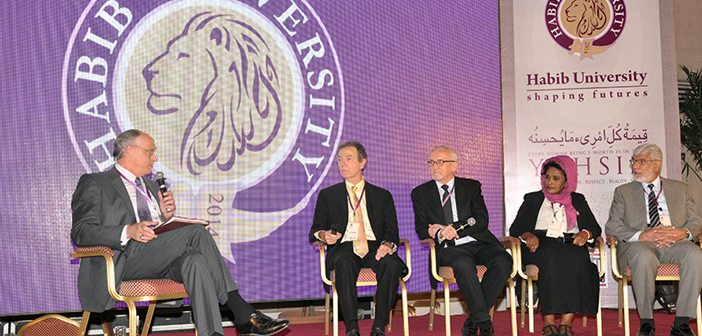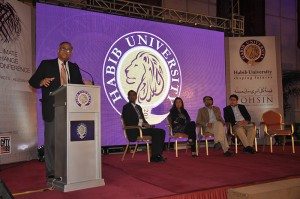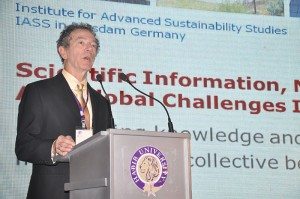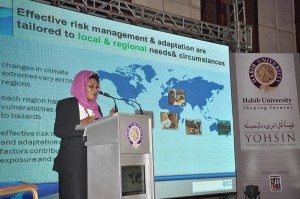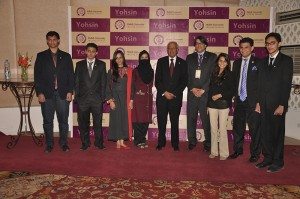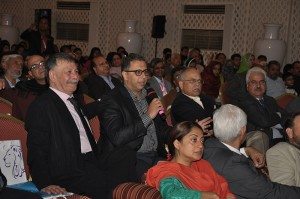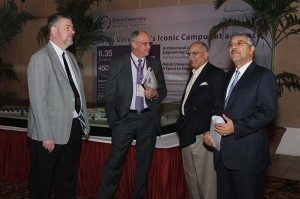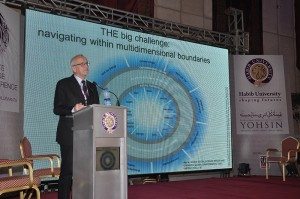Pakistan faces critical challenges as a result of climate change. It is of paramount concern that it ranks 3rd on the list of most vulnerable countries (Global Climate Risk Index 2012) and was also the third most affected country last year. Other developing countries, several of them in the Asia Pacific region, are also likely to face the brunt of the environmental, social and economic impacts of climate change. There are assertions that greenhouse gas emissions are a major factor in climate change. However, developing countries contribute only 10 per cent of annual global carbon dioxide emissions. In fact, Pakistan, the sixth most populous country in the world, ranks 135th in carbon dioxide emissions.
A recent report from the World Bank warned Pakistan of the existence of five major risks related to climate change, rise in sea level, glacial retreats, floods, higher average temperature and higher frequency of droughts. Water availability, food security and human healthcare most likely to be negatively affected by climate change effects such as erratic weather patterns, changing rainfall trends and extreme weather events including floods which have been plaguing the countryside for the past few years. These raise major challenges for current and future decision-making and have multifaceted impact on economy, agriculture, water resources and urban management. Environmental experts estimate that the country incurs financial losses of $5.2 billion annually as a result of environmental degradation.
Pakistan has witnessed devastating floods and droughts. The seesaw weather patterns are a new phenomenon but the term ‘climate change’ is still neither widely recognized nor completely understood in the country. In fact, global warming and climate change is still seen as a global issue and policy makers and stakeholders in Pakistan have been unable to root it in the indigenous context. This hampers discussions and consensus building on the subject and exacerbates the problem.
Recognizing these challenges, Habib University is hosting a Conference on Climate Change. The Conference will focus on different aspects of environmental degradation including:
– Societal and economic impact
– Costs of climate change, now and in future
– Mitigation actions
– Adaptation methods and their veracity
Habib University Conference on Climate Change will invite global scholars, thinkers, activists and writers from Pakistan and abroad to discuss the various aspects of climate change, reflect on the crisis at the present conjuncture and formulate possible alleviants to reduce and manage the impact.

